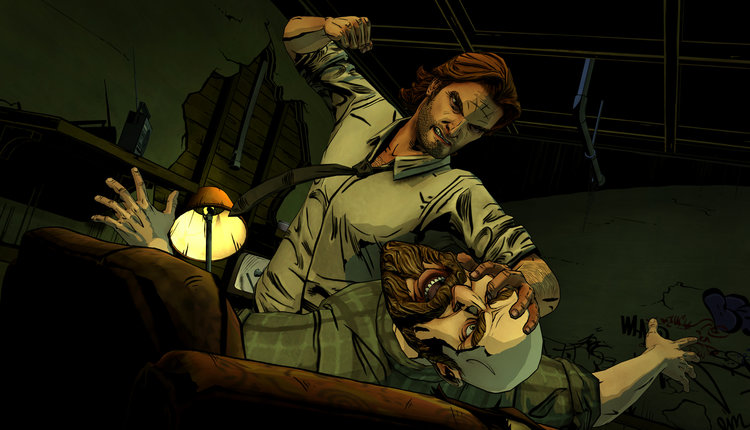Telltale Heart: The Fallout After the Collapse of Telltale Games
People deserve to be paid for the work they do. Writers, mechanics, game designers and everyone else that works all deserve payment equal to the value of the labour they perform. But what happens when the organisations people work for shut down due to bankruptcy or foreclosure or any other reason. Should the employees be left to fend for themselves? Should they be left without severance packages so that they can no longer afford to live or even survive? If your answers to the above are no then congratulations you feel empathy for the common man and probably support some kind of unionization. Unfortunately neither empathy nor unions exist at Telltale Games which has lead to one of the biggest games industry scandals of 2018.
Last week Telltale Games laid off 275 employees as the company’s final investor pulled it’s funding leading to crippling financial problems. Telltale are best known for creating games based on The Walking Dead, Game of Thrones and Batman. The player choice and narrative depth to the games lead to The Walking Dead series becoming incredibly popular. As Telltale acquired more and more lucrative deals for licenses such as Minecraft and Guardians of the Galaxy the cracks began to appear. So many projects in development lead to a culture of ‘crunch time’ which in game development terms means massive amounts of overtime in order to reach deadlines and finish games.
Crunch culture has been part of the gaming industry for years. Stories of programmers sleeping at their desks, illness brought on by fatigue and mental anguish at being separated from friends and family for long periods of time are common. Gradually there has been a shift away from crunch to a healthier way of working but that doesn’t mean the problem has been solved. Before late 2017 Telltale Games were notorious for their crunch culture. The popularity of The Walking Dead lead to similar approaches to every Telltale game that followed. This in turn lead to a lack of creativity and staff burnouts while the studio’s engine – the Telltale Tool – became older and older. Measures were put in place but it would prove to be too little, too late.
The Minecraft, Batman and forthcoming Stranger Things games along with all the others were cancelled. Hope held out for The Walking Dead before the axe inevitably fell on it and it’s fan favourite main character Clementine. But these things are all fictional. What matters are the people behind the fiction. When games are made it’s often studio names like EA, Naughty Dog or Capcom that are mentioned. When people are mentioned it’s the Creative Directors like Neil Druckman (The Last of Us), Cory Barlog (God of War) and Ken Levine (the Bioshock games) that get name-dropped. Hundreds of people worked on the above games. Sometimes only one person works on a game. Sometimes it’s ten people but the point is that it’s the people that make the games. The people make up the studios and the Creative Directors lead the people. All deserve to be paid and all deserve severance should the worst happen.
[perfectpullquote align=”full” bordertop=”false” cite=”” link=”” color=”#70006C” class=”” size=”19"]”It speaks of a toxic and deadly hubris that eventually brought Telltale Games crashing down.”[/[/perfectpullquote]p>
It’s still unclear what will happen to Telltale Games, it’s even more unclear what will happen to the people that work there. Telltale Games is based in San Francisco where the average rent is $3,000 a month. The decision then to leave 275 people out in the cold is not just morally wrong it borders on the inhumane. Telltale Games seemed to be on the right track. In an interview with gaming industry magazine Edge published right before the studio’s closure the executive producer on The Walking Dead Brodie Andersen said: “That’s something I carry with me each day: making sure we have a healthy production, a healthy team and that we’re not running people into the ground.” It’s doubly baffling then that Telltale Games treated its employees the way it did post-closure.
Telltale Games’ senior management knew things were going badly at the studio for over a year. “Internal restructuring” – always a bad sign – saw the company lay off 25% of its staff in December 2017. There should have been a plan for this. In a time when games development is as risky as it is with the days of crowdfunding slowly dying out and financing costs rising plans should be put in place to help the people that matter most. Without the artists, the quality assurance testers, the programmers, the quest designers and the animators then there is no game. Regardless of how smart and creative Ken Levine or Cory Barlog are they can’t make the massive games they do without teams of dedicated professionals behind them. The fact that there was no severance plan speaks of a toxic and deadly hubris that eventually brought Telltale Games crashing down around the people that made the studio the storytelling powerhouse that it was.

I don’t know if The Walking Dead will ever be finished and I don’t really care. But I care about people and barring some unheard of resurrection then Telltale Games and all its IPs will likely never see the light of day again. It’s a situation worthy of despair but not until Telltale Games pays it’s employees – who have all expressed their rightful anger at the decision – then they can get back to work on the games that are so beloved.

